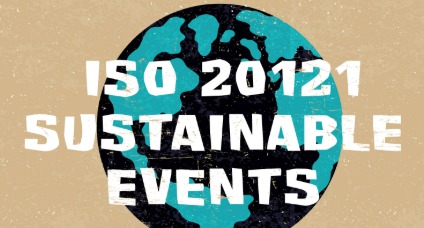In today’s world, sustainability has become a key consideration across all industries, including the events sector. Whether it’s a corporate conference, music festival, sports event, or exhibition, organizations are increasingly expected to minimize environmental impacts and promote social responsibility. This is where ISO 20121:2012 – Event Sustainability Management System comes into play.
What is ISO 20121:2012?
ISO 20121:2012 is an international standard developed by the International Organization for Standardization (ISO) that provides a framework for managing events sustainably. It helps organizations in the events industry integrate sustainability into every aspect of event planning and execution. The standard covers environmental, social, and economic dimensions, ensuring that events contribute positively to communities and minimize negative impacts on the planet.
Originally inspired by the London 2012 Olympic Games’ sustainability strategy, ISO 20121 offers a practical, flexible approach suitable for organizations of all sizes — from small event planners to large global organizers.
Key Objectives of ISO 20121
The main goal of ISO 20121 is to promote a balanced approach to event management, ensuring that sustainability is at the heart of decision-making. Its objectives include:
-
Reducing waste, emissions, and resource consumption during events.
-
Encouraging social inclusion and stakeholder engagement.
-
Promoting local economic development and fair practices.
-
Enhancing reputation and trust among clients, sponsors, and attendees.
-
Ensuring long-term sustainability and continuous improvement.
Core Principles of ISO 20121
The standard is built on three essential pillars:
-
Environmental Responsibility: Managing energy, waste, and materials efficiently to reduce environmental footprints.
-
Social Inclusion: Ensuring events are accessible, fair, and beneficial to local communities.
-
Economic Viability: Supporting local economies, maintaining cost efficiency, and ensuring value creation.
Benefits of ISO 20121 Certification
Achieving ISO 20121 certification offers a range of benefits for event organizers and their stakeholders:
-
Enhanced Reputation: Demonstrates commitment to sustainability and ethical event management.
-
Operational Efficiency: Helps identify and eliminate wasteful practices, saving time and money.
-
Stakeholder Confidence: Builds trust among clients, sponsors, and attendees who value responsible practices.
-
Compliance and Risk Reduction: Ensures compliance with environmental laws and reduces operational risks.
-
Competitive Advantage: Distinguishes your organization in a market increasingly focused on sustainability.
Implementation of ISO 20121
Implementing ISO 20121 involves assessing all event-related activities and identifying their potential environmental and social impacts. Organizations must establish clear sustainability objectives, engage stakeholders, and monitor progress through performance indicators. Continuous improvement is a core requirement, meaning that every event should aim to perform better than the last.
Conclusion
ISO 20121:2012 is more than just a certification — it’s a commitment to creating a positive legacy through sustainable event management. By adopting this standard, organizations demonstrate leadership, responsibility, and innovation in the global movement toward sustainability. In an age where audiences and clients demand accountability, ISO 20121 helps ensure that every event leaves lasting memories — not lasting damage.






